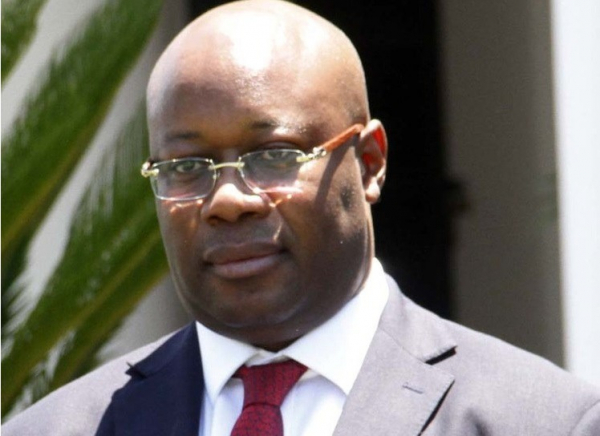
Editorial
THE Hwange Colliery Company Limited (HCCL) saga, where one of the country’s coal mining giants has been rendered comatose by greedy individuals, needs urgent interventions by President Emmerson Mnangagwa’s government if the company is to go back to its profit-making days.
Massive corruption at HCCL has been unearthed by a forensic audit by Reynolds Tendai Muza, a forensic auditor and investigator with Ralph Bomment Greenacre and Reynolds.
Investigations by the Mines Portfolio Committee, before it was disbanded, have also exposed that the once thriving mine was actually destroyed by very powerful persons, some of who are currently serving in government.
What is more disturbing is that despite government pumping in a $111 million loan in 2016 to resuscitate the company, the coal miner continued to be loss-making due to mismanagement, reckless trading and money laundering.
Some of the big names that have been fingered in the HCCL corruption saga include current Mines minister Winstone Chitando, who was once the HCCL board chairperson and former Mines deputy minister Fred Moyo. Several companies have also been benefitting through coal concessions, while Hwange is struggling.
Others are ferrying Hwange coal at huge costs due to lack of repairs of equipment, thus rendering HCCL a feeding trough for a few individuals.
For instance, while HCCL has been placed under reconstruction, we hear allegations that Billy Rautenbach’s Liberation Mine is by the corner and benefitting from the coal resources in Hwange.
- Chamisa under fire over US$120K donation
- Mavhunga puts DeMbare into Chibuku quarterfinals
- Pension funds bet on Cabora Bassa oilfields
- Councils defy govt fire tender directive
Keep Reading
What has been very disturbing about the HCCL saga is that when other shareholders like London-based Zimbabwean businessman Nicholas Van Hoogstraten were about to give oral evidence in Parliament on how the HCCL went comatose, there was a lot of interference from politicians.
How then is HCCL going to be resuscitated if there is no political will to deal outright with the corruption and to bring those implicated to book?
When Van Hoogstraten appeared last year before the Mines Portfolio Committee to give his views on the resuscitation of Hwange, some Zanu PF legislators teamed up to disrupt the proceedings and ensured the businessman never uttered a word.
This was then followed by more disturbances during investigations by the Mines Portfolio Committee on the Hwange Colliery saga which resulted in death threats, and a $400 000 bribery storm allegation on former committee chairperson Temba Mliswa, and members of his committee, Anele Ndebele (Magwegwe MP), Prince Dubeko Sibanda (Binga North MP) and Leonard Chikomba (Gokwe Kabuyuni MP).
The bribery allegations also involved a powerful businessman, James Goddard, who is interested in HCCL. Mnangagwa and Vice-President Kembo Mohadi’s names have also been mentioned in the saga.
There is also the involvement of Shepherd Tundiya, recently described as a con-artist by Goddard and the four MPs involved in the $400 000 bribery storm.
Tundiya has been actively involved in the HCCL corruption, with allegations that his transport company, AVIM, is milking the company dry, and that he has been stealing some of the coal.
Worse still, Tundiya is said to have been masquerading as a Central Intelligence Organisation (CIO) operative and an officer of the Office of the President and Cabinet sent by Mnangagwa to sort out the Hwange mess. The question now is: From where really does Tundiya derive his powers?
Tundiya has used his CIO tag to even kidnap members of the HCCL board and management, threaten them, and to call the shots at Hwange.
The question that then arises is what next for HCCL? Who is going to bring an end to the corruption there because members of the Executive and Parliament, who Zimbabweans expect to sort out the mess, are actually fingered in the alleged scam?
In the HCCL investigations, Parliament has been rendered useless and the Mines Portfolio Committee disbanded and reconstituted. Worse still, the committee was disbanded because of HCCL issues where some MPs seemed serious in resolving and exposing the graft, while others were bent on disrupting investigations.
HCCL is a very strategic mining company. It created a huge mining town which employed thousands, put up massive infrastructure and was a source of livelihood for thousands of families during its heydays.
Mnangagwa’s government needs to move with speed to resolve the corruption issues at Hwange and to make sure that those involved in bringing HCCL to its knees are brought to book.
The “Zimbabwe is open for business” mantra will only work if there is a concerted effort to deal with corruption, which has destroyed strategic companies such as the HCCL.











